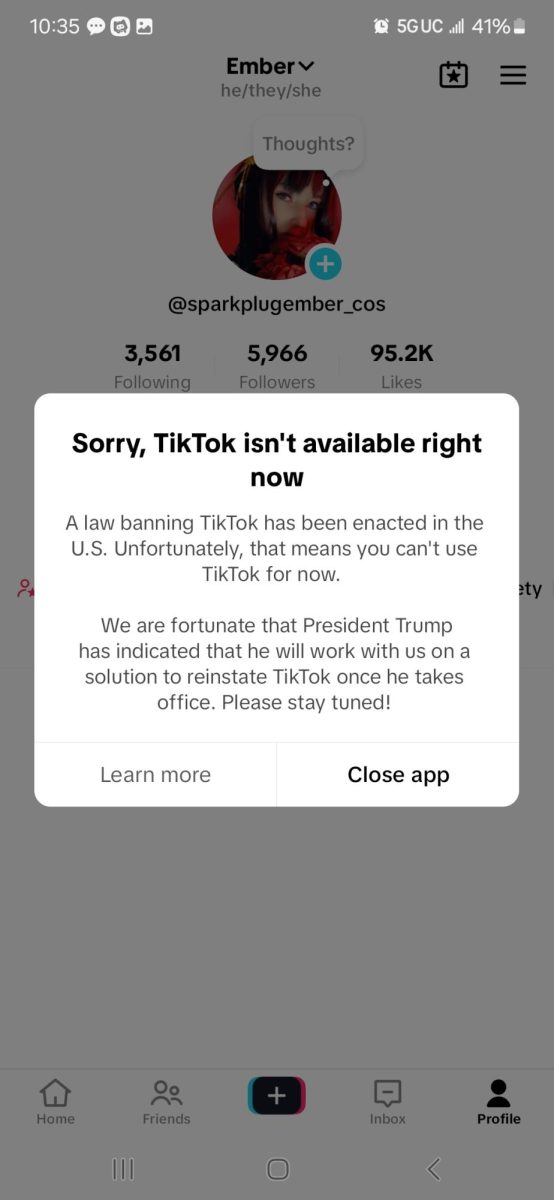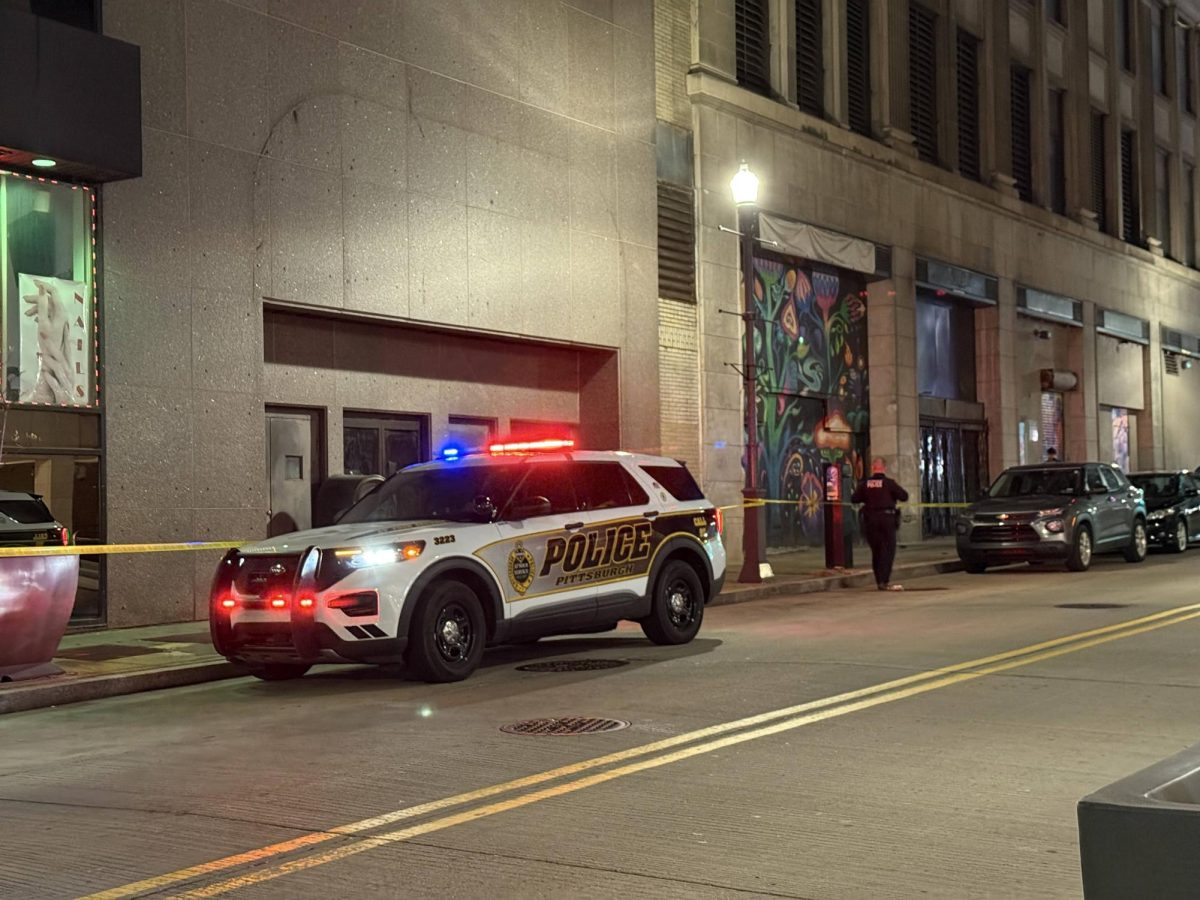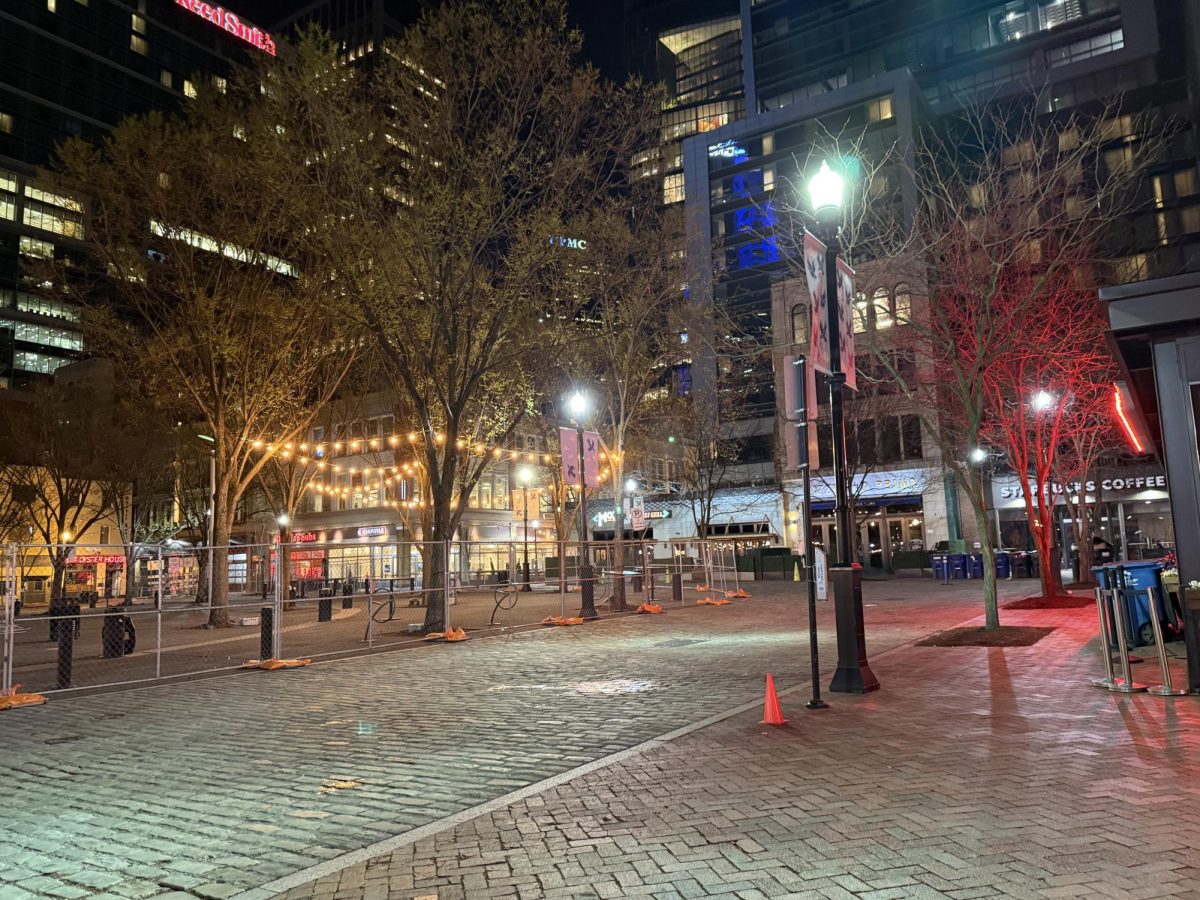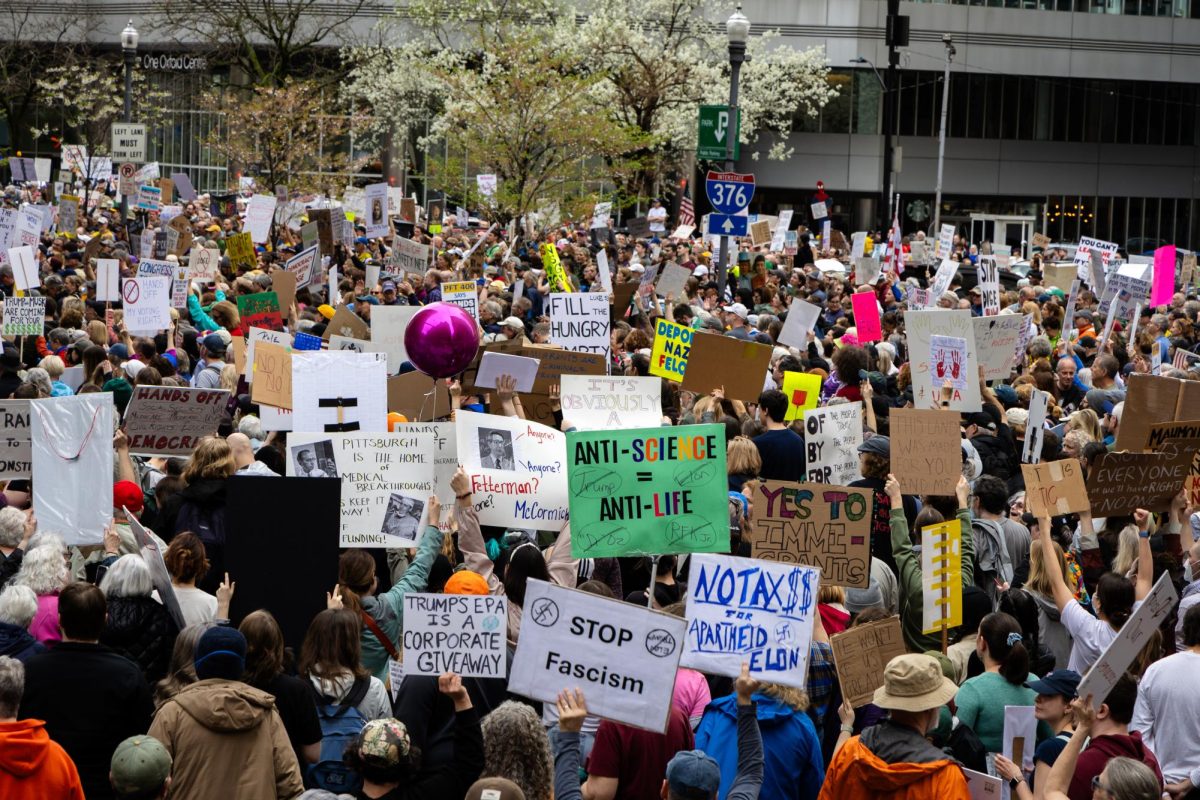A ban on TikTok went into effect on Jan. 19, in the United States, causing the app to go “dark” after a Supreme Court ruling upheld the ban. The ban not only affected TikTok, but also apps like Lemon8 and Capcut which are owned by the same parent company as TikTok.
Congress imposed the ban due to security concerns, according to an opinion released from the United States Supreme court on Jan. 17. The concerns were in regards TikTok’s collection practices and relations with China, which it called a foreign adversary. The opinion also recognized the app as, “a distinctive and expansive outlet for expression, means of engagement and source of community.”
“For the foregoing reasons,” the opinion said, “We conclude that the challenged provisions do not violate petitioners’ First Amendment rights.”
Despite this, TikTok remained down in the United States for less than 24 hours. When users opened the app around 2 p.m. on Jan. 20, they were greeted with a message that said, “Thanks for your patience and support. As a result of President Trump’s efforts, TikTok is back in the U.S.! You can continue to create, share, and discover all the things you love on TikTok.”
A similar message appeared on Lemon8, but otherwise both apps seem to function as they did before they went “dark” on Jan. 19. At this time, it is unclear what this means for the TikTok ban.
Yet many Americans may still lose their platforms, including Point Park students like Chase Bowen, a first-year digital journalism student. He is a creator on TikTok who has over 60,000 followers on the platform. His username is im.just.chase.
Bowen started his account back in 2019 as a way to cure boredom.
“I was like why not make content about the NFL and the team I love — which is the Steelers,” Bowen said.
He never thought his account would grow to be so huge. He’s even made a good bit of money from his videos.
“It has been fun making videos and having that amount of people watch my videos,” Bowen said. “Also, of the videos I’ve made and the dedication it has taken me to make them, it is hard for me to just see it all be gone.”
Bowen currently isn’t sure which social media platform he plans to use in the future, but he is thinking about using YouTube Shorts. Although, it may be a while before he does.
While there are many negatives to the possible TikTok ban, there are also some positives. Nadia Jones, a senior SAEM major, works in social media management and looks at both sides.
“I feel like the world of social media in general is very much everchanging in many ways, so I do think it’s obviously going to cause some noise and disruption,” Jones said. “But it’s a room for smaller creators to blow up, so I kind of see a positive and a negative to it.”
Jones has her own account on TikTok but is hardly active on it.
“With how large TikTok is, I feel like I’m always falling into the loopholes of cat videos and all the other videos I enjoy,” said Jones. “I’m on there for hours, and then I didn’t get anything done because I’ve been in a doom scroll episode for the past four hours.”
Jones isn’t too upset about the ban because she feels most people have built more of a negative relationship with the app than a positive one Jones said.










